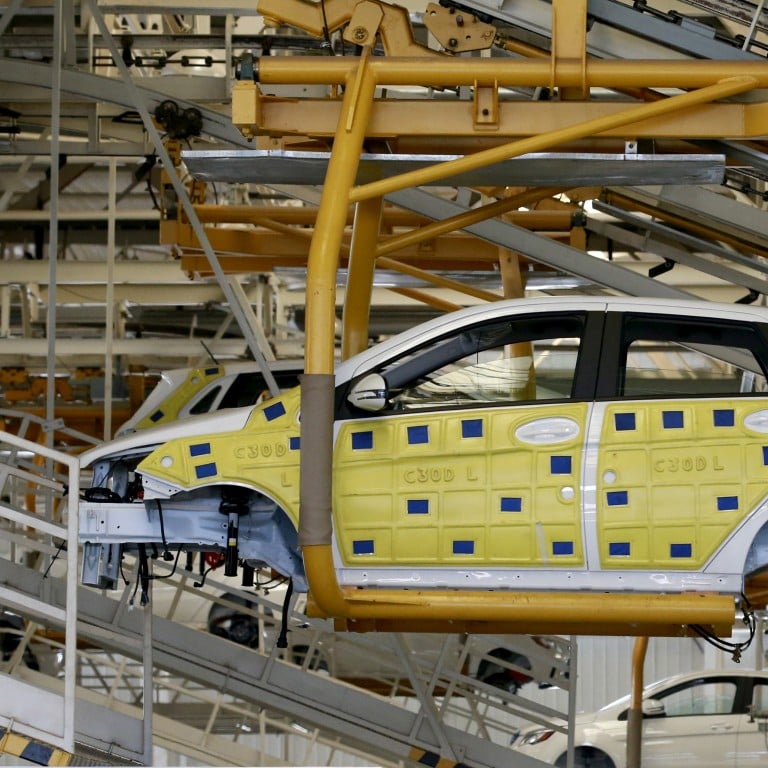
Beijing’s move to keep tax break on purchases of new-energy vehicles to support troubled auto sector, help biggest players
- Buyers of environmentally friendly cars will continue to get a 10 per cent tax break
- A shake-up in the electric vehicle sectors is still expected, as top brands likely to see most benefit
A move by Beijing to keep a sales tax break on environmentally friendly cars to help the sputtering auto sector will boost the fortunes of top domestic EV manufacturers as well as the popular Tesla from the US over smaller players, analysts say.
Beijing had been widely expected to scrap the sales tax break, but the Ministry of Finance announced on Friday it is extending it. A change had been expected to go into effect Monday, but buyers battery-powered and plug-in hybrid cars will still be exempt from the 10 per cent sales tax until the end of 2020.
The auto sector is one of China’s biggest economic engines and accounts for one of six jobs. But car sales have fallen off in the world’s largest auto market, partly due to weakened demand amid the US-China trade war.
This happens as China has been turning itself into the world’s leader in electric vehicles, as Xi Jinping steps up the battle against air pollution and pushes toward innovative technology. Sales of EVs totalled 1.26 million units in 2018, or 52 per cent of the world’s total, making China the largest new energy car market on the planet.
As many as 500 start-ups stampeded into the EV sector, in part because the tax break initiated at the start of 2018 has made environmentally friendly cars more affordable. But the field is very crowded, and a shakeout is predicted. Ending the tax break was one way the government could make it harder for weak players to survive, analysts said, but that shakeout is still expected.
“This is a message that top NEV makers will continue to benefit from the government’s support as small and underachieving players are edged out,” said Cao Hua, a partner at private equity firm Unity Asset Management. “At the next stage, authorities will spend more capital and (land) resources to build a complete nationwide charging network to largely promote the use of new-energy cars.”
Paul Gong, a UBS analyst, predicted that eight to 10 companies – including Geely Automobile Holdings, SAIC Motor and Guangzhou Auto – would benefit most from the extension of the tax break. They are launching high-performance models coming months.
Leading EV start-ups Xpeng Motors and Nio will also get a boost.
Tesla is well on its way to producing its Model 3 cars at its Gigafactory 3 in Shanghai by the end of the year. Teslas are popular in China, but pricey, meaning a tax break for many car buyers, underscoring the importance of the tax break.
Regardless of the tax break, the China Association of Automobile Manufacturers forecasts that sales of NEVs in China will climb by 27 per cent to a record 1.6 million units in 2019.
“A 10 per cent tax translates into more than 10,000 yuan (US$1,455) extra spending on buying a car,” said Tian Maowei, a sales manager at Yiyou Auto Service.

